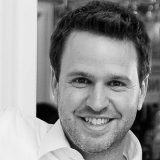This year, as we mark Israel’s 77th Independence Day, I find it hard to summon the joy and pride that usually accompany this moment. I say this as someone who loves this country deeply—as an Israeli who has grown up with the complexities, the dreams, and the heartbreaks that are woven into our national story.
Every Yom Ha’atzmaut, we celebrate the miracle of our independence. We honor the courage of those who built and defended this country, and we sing and dance in gratitude for the privilege of living in a sovereign Jewish state. But this year, our celebrations feel incomplete. There’s a heaviness in the air—a silence between the fireworks and the music, a deep ache beneath the blue and white.
Because this year, 59 of our brothers and sisters are still being held captive in Gaza.
Their absence is a constant shadow, a sharp and unrelenting pain in the heart of the nation. We know their names. We’ve seen their photos. Some were taken from their beds, others from bomb shelters. They are babies and the elderly, men and women, soldiers and civilians. Every single one of them has a family waking up each day in unspeakable agony, waiting, hoping, fearing.
Their captivity is a wound that Israel cannot ignore. It has pierced the soul of this country, and it redefines what independence means in this moment. How can we feel truly free while they are still in chains?
And yet, as with so much in our history, even this unbearable truth is wrapped in complexity. The question of how to bring them home has become the heart of one of the most painful political and moral debates in our society.
On one side, there are those who argue—rightly—that we must do everything, everything, to bring the hostages home. That no price is too high, that the sanctity of life is above all else, that a country that does not fight for every last one of its citizens has lost its way. They see inaction as a betrayal—not only of the hostages, but of our national soul.
On the other side, there are those who fear that the cost of a deal could endanger lives in other ways. That it could embolden our enemies, fuel further terror, and undermine the security of the nation. Some point to the war still raging, the soldiers still fighting, the difficult choices facing our leaders every day. They believe that the stakes are too high for concessions that could lead to future atrocities.
And then, there are those of us caught in the middle—desperate for the hostages to come home, but torn by the gravity of the choices that lie before us. We live in a country at war, with a society fractured and weary, and we are trying to navigate our way through impossible moral terrain.
But what unites us all—across political, ideological, and emotional divides—is that we have not forgotten. We cannot forget. The hostages are in our prayers, in our protests, on our street corners, and our social media feeds. We carry them with us wherever we go, and our hearts break a little more each day they remain in captivity.
So, this year, on Yom Ha’atzmaut, I won’t be dancing in the streets. I’ll be lighting a candle for the 59 who are not yet home. I’ll be thinking of their families and their unimaginable pain. I’ll be holding onto hope—fragile, stubborn, and persistent—that by next year, this nightmare will be over.
My wish, as we mark Israel’s 77th birthday, is simple and profound: that all of the hostages come home. That we are reunited with every single one of them. That next year, we celebrate with the knowledge that we did not rest, that we did not give up, that we did everything in our power to bring them back.
And, beyond that, I wish for healing—for this country to begin stitching its wounds, both visible and invisible. We are a nation in pain, in mourning, in conflict. But we are also a nation of resilience, of compassion, of enduring hope.
Israel is still at war. The scars are still fresh. The divisions are real. But if there is one thing that has defined us since 1948, it is our refusal to give up—on our future, on one another, on the promise of this homeland.
May we live to see the day when all our captives are free.
May we live to see an Israel at peace—within its borders, and within itself.
May that be the independence we celebrate next year.
Am Yisrael Chai.



